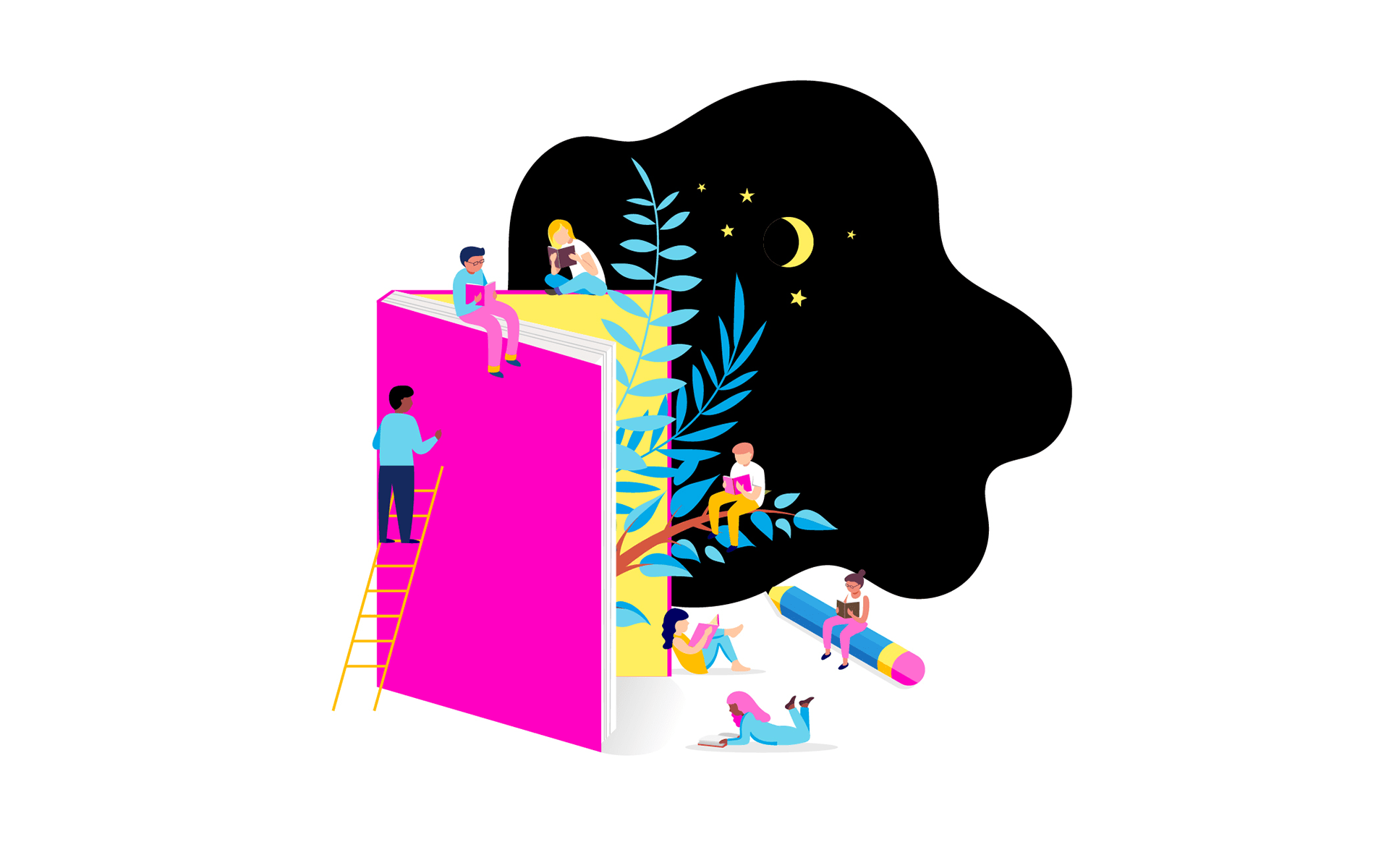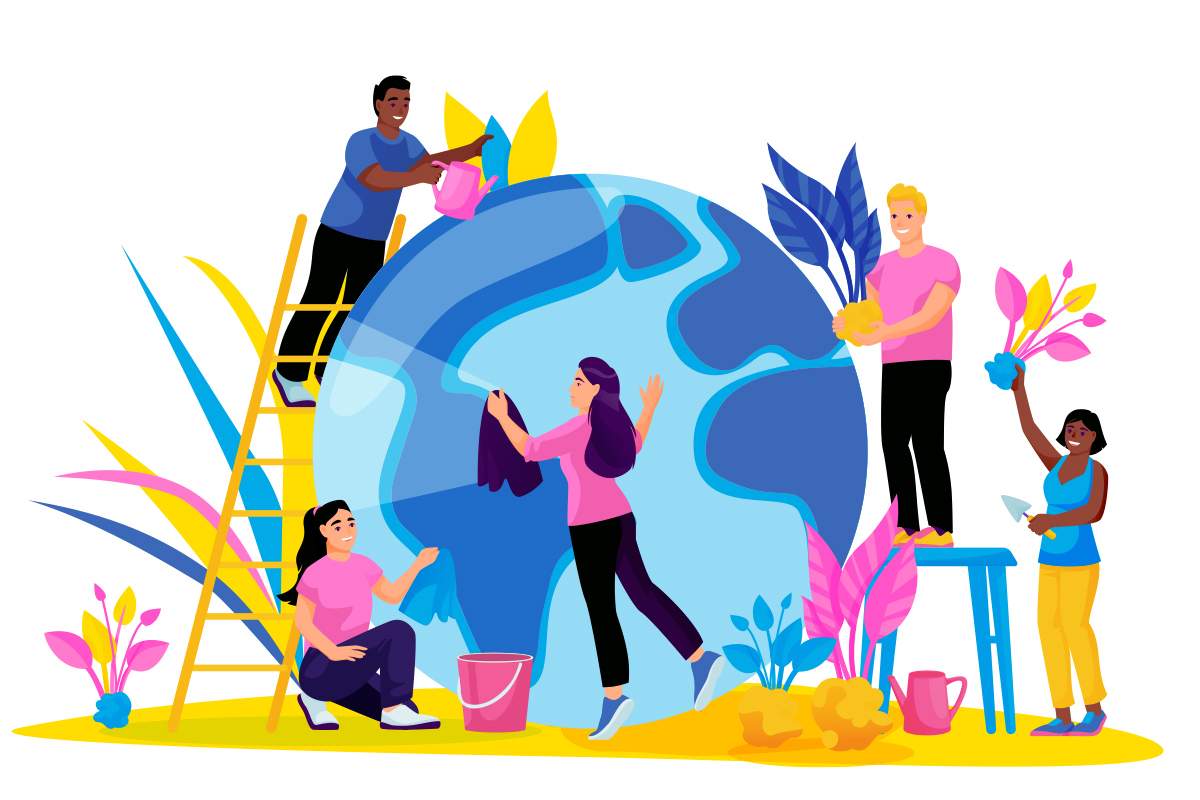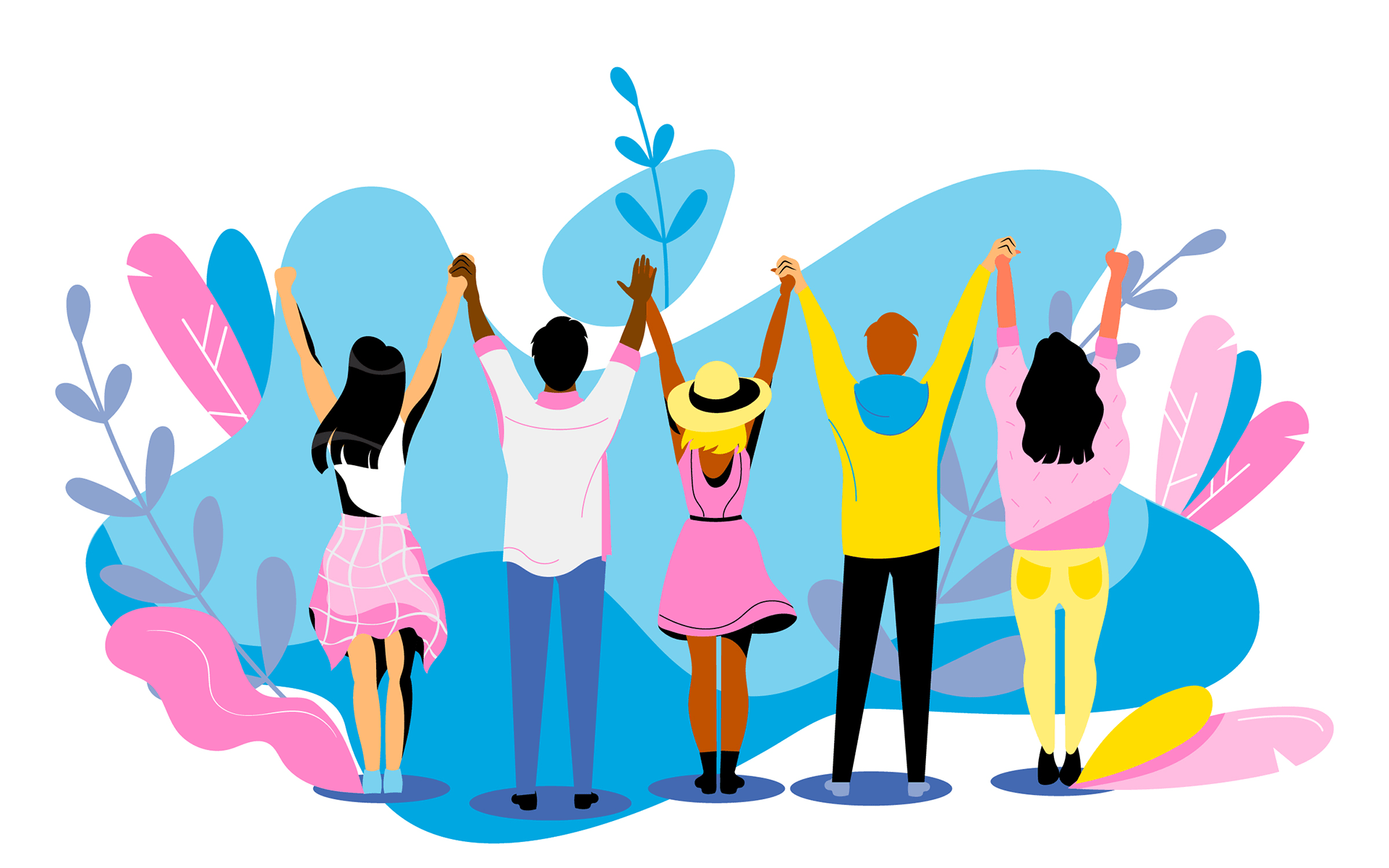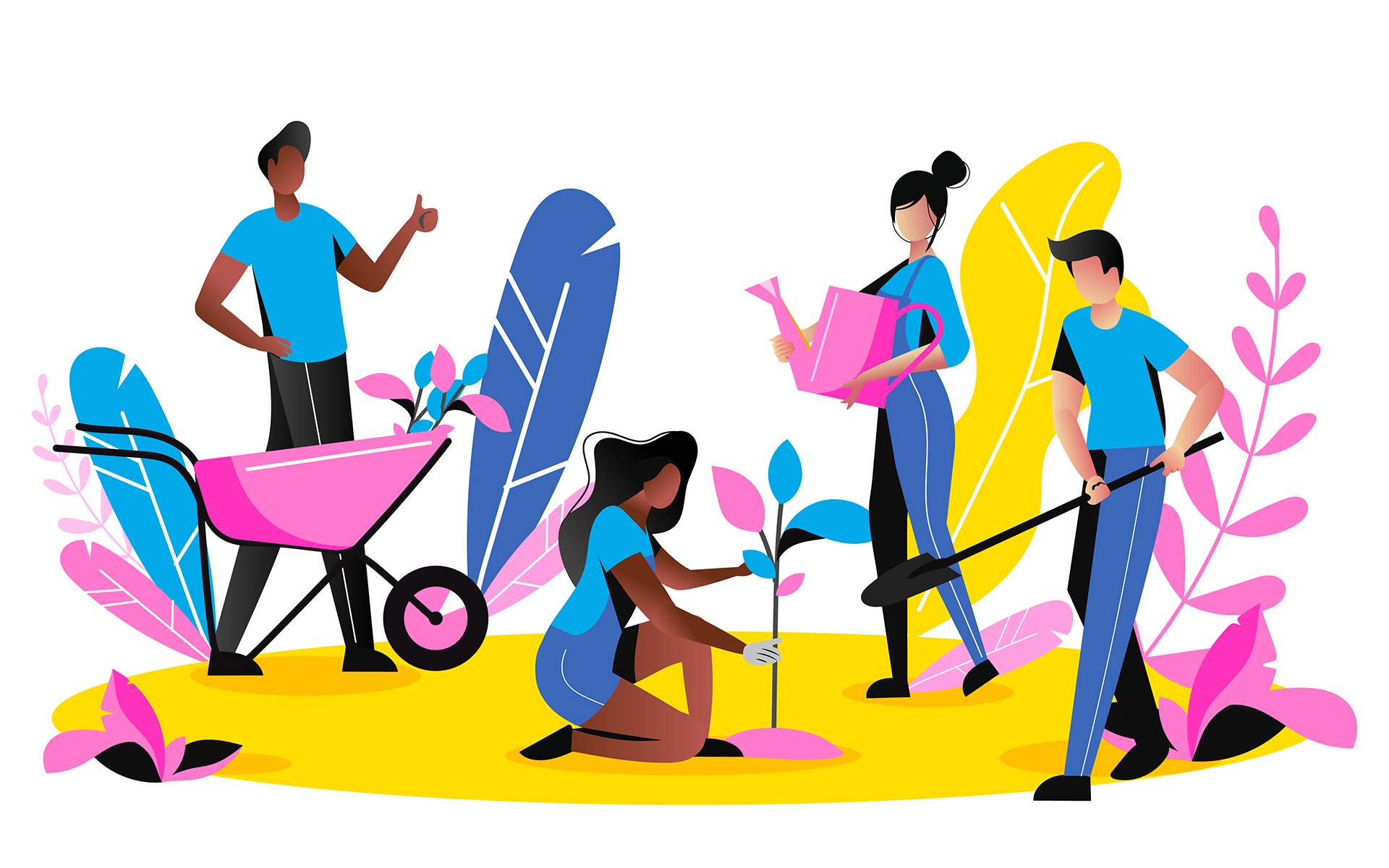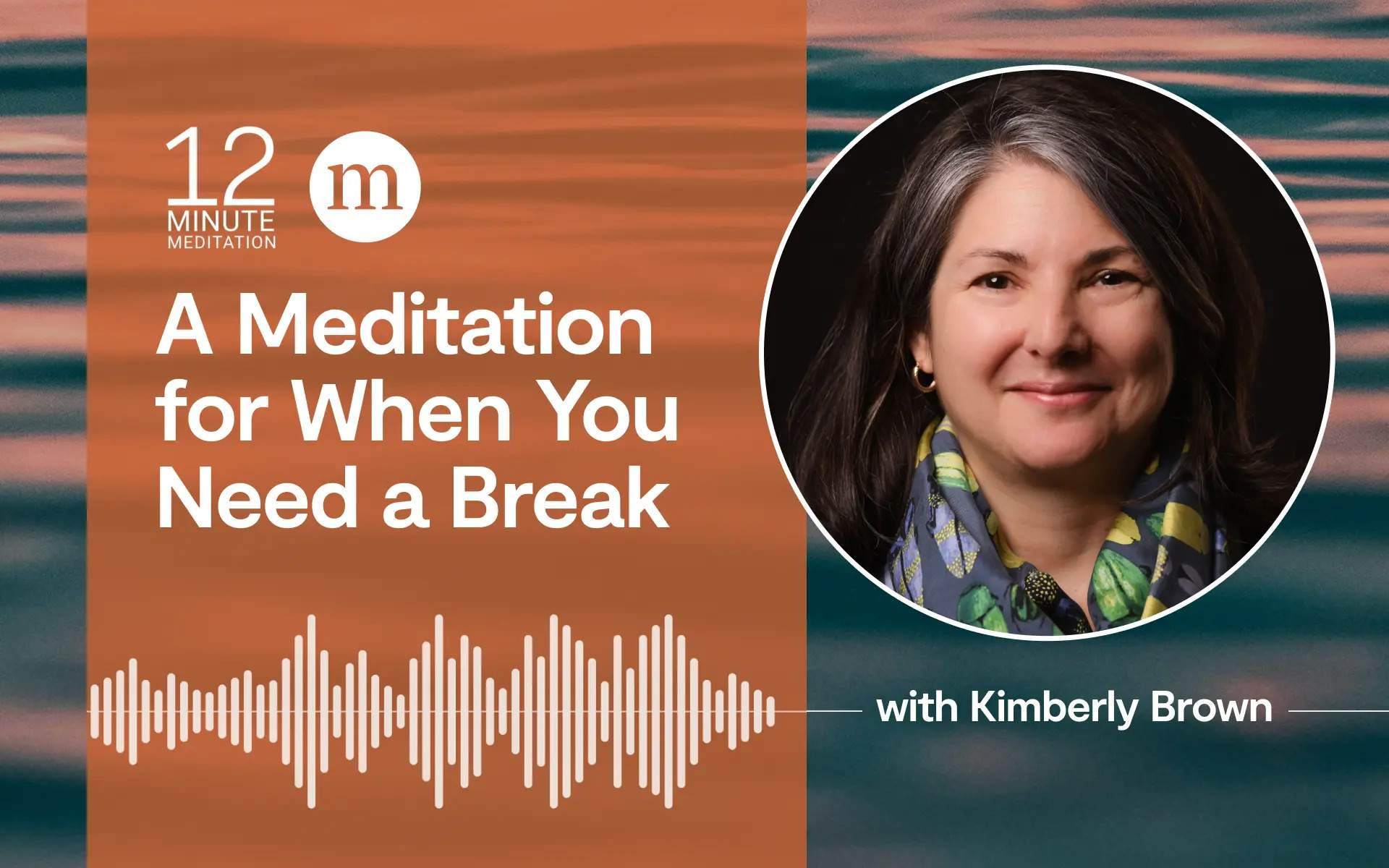Real Mindful: How Stories Shape Us with Barry Boyce
Stephanie Domet: Hello, and welcome to Real Mindful. This is where we speak mindfully about things that matter.
We meet here twice a month to introduce you to some of the teachers, thinkers, writers, and researchers who are engaged in the mindfulness movement. You’ll hear all kinds of conversations here about the science of mindfulness, the practice of mindfulness—and the heart of it. And if you have been a listener of Point of View with Barry Boyce, you have come to the right place. Barry is our guest today, as a matter of fact.
I’m Stephanie Domet. I’m the managing editor at mindful magazine and mindful.org and this is Real Mindful.
Barry Boyce is the founding editor of Mindful and mindful.org, and in every issue of the magazine, he writes the back-page column “Point of View.” Barry has a deep mindfulness practice developed over decades, and is the author of The Mindfulness Revolution.
Barry and I connected on Zoom recently to talk about his column in the December issue of Mindful. Barry explores the role stories play, the way they sometimes expire, and what’s at stake when we don’t look past our stories to tune in with what’s actually happening in our first hand experience. I hope you enjoy this conversation as much as I did.
Barry Boyce, hello, welcome back.
Barry Boyce: Great to be back. Always a pleasure.
SD: A pleasure for me as well. And in this conversation, in this column in the December issue of the magazine, you’re writing about one of my favorite subjects in life and one of my thorniest challenges as a meditator. And that’s stories. We’re both writers, so we’re probably oriented in somewhat the same direction: stories are vital, they tell us who we are, where we come from, how to be human. But of course, that’s not the full story on stories and you get into some of that in your column. Some stories don’t stand the test of time. Often they don’t show the whole picture and you make the point, the more time we spend engrossed in stories, the less time we spend in firsthand experience. So I wonder if you could start by talking more about that. What do we get from firsthand experience that we don’t get from stories?
BB: Yeah. Well, this whole story thing has been a deep and ongoing contemplation for me. As you’re saying, you know, as a writer and editor and basically a professional storyteller and a curator of stories and a collector of stories, you know, I love them. I love a good raconteur. So often when people get together, if you’re hanging out, you give your friends a PowerPoint presentation about your son. “So, let me give you the five points of this previous week.”
SD: “Let me summarize my story about the most bonkers thing that happened to me recently.”
BB: You collect your experience into a story. Obviously it’s a rich and wonderful part of being human. So to answer your first question, rather than to tell a story, I was inspired to talk about direct experience based on some discussions I’ve been having with some mindfulness teacher friends who’ve been emphasizing in their experience working with teaching people in meditation the value of our sense of where we are. Propreoception is kind of like—Even before you do any formal meditation with somebody or for yourself, listener, just touch something. Like, I’m touching my laptop. It’s warm. That’s what sensory experience is. Or if I just reach over here and drink some water. I mean, it’s water, it doesn’t have a lot of taste to it, but it’s a whole experience. And you know, it’s been pointed out that if you go back really far in human history, our sensory engagement on a daily basis would be necessarily more intense than we have now. For example, to get that water, I would have to walk somewhere. And, you know, maybe turn a crank or there’d be so much more involved in just living our daily life that would keep us on the ground. So in teaching people meditation, if you could just say, “OK feel your butt touching the seat,” start there, and that really is the first part of mindfulness. We call mindfulness a body, but “body” doesn’t just mean this body. It’s mindfulness of your sensory field and that you are someplace. There’s a lot of power in that and that’s a place that we can always return to when we get lost in the story we’re telling ourselves. I think that’s an important aspect of this.
SD: Is there something here about what’s real or what’s true? And I think those are two different things and is harder to assess in stories than it is in sipping from a glass of water.
BB: Yeah, I think in a story, part of its power is that it’s dangerous.
SD: Because it can be persuasive. It can hide all sorts of things.
BB: I’ve been writing a little bit recently about some things that happened. Now, you see, 55 years ago, I realize, OK, there’s no way this is photographically or objectively true, right? All stories that are old, that are people’s memoirs from my childhood or something should carry that kind of disclaimer. There’s no way that what I’m recollecting isn’t a narration that I’m creating on the spot from fragments. So when we try to think, what happened yesterday when I had that argument with Jane? When you start constructing that narrative of what happened, it organizes it and makes it coherent. But, it’s also no longer firsthand experience and, therefore, it’s a little bit dangerous, right?
SD: And it doesn’t take into account Jane’s point of view either, does it?
BB: Exactly. You start making up stuff about where Jane was at and, well, you narrow the context. You have to put a frame around something.
SD: A container of some sort.
BB:Yeah, you’re not going to like, OK, this novel is about everything that happened all the time everywhere.
SD: That’s right. The flashlight that you’re using, you can only shine it on part of the story and you’re making that choice. And we’re doing that too, when we’re distilling our own experience into a story, right?
BB: I think that’s a really good observation. Alison Gopnik, a developmental psychologist who is the sister of Adam Gopnik, the writer, she talks about the childhood brain and the difference between the flashlight and the search light or the lantern. When we focus that flashlight in order to make a coherent story, what are we leaving out at the edges? The lantern is where we’re stepping back and loosening the desire to make it all coherent and it’s not like one is bad and the other is good, but we need both.
SD: Right, right. I’m having this moment of realization that that drive toward coherence has been my whole life, like that’s that’s really strongly been my orientation. Let me take these things and let me make them somehow make sense. And I will fit them together in whatever way I need to, sometimes forcing them in.
BB: Have you ever had a conversation with a sibling about your family or your home life and you come to realize, wow, we have like there are some overlaps in our narrative?
SD: Yeah, but there’s also, you know, it’s like, did we grow up in the same house?
BB: Exactly.
SD: I’m sure I remember seeing you there. I guess I’m thinking of a time when I was a little kid, and this is a story that is in family lore and all’s well that ends well. But me and my two brothers and our mom, we were at a neighborhood pool party, and this was before any of us had learned how to swim. So the kids were in the pool unsupervised because it was the 1970s and the moms were in the gazebo drinking iced tea and there was no rope up to delineate a deep end and a shallow end and I remember, and always maintained from the time I was a kid, that my older brother suggested that perhaps this pool was shallow all the way across, and he wanted to find out. And I was game for finding out, but I have always been kind of cautious and a bit of a chicken so I was going to hold on to the wall of the pool and just push my toe down to see if it was going to get deeper. What I remember is that Chris, my older brother, loaded Jeff, my younger brother, onto his back and just set out into the middle of the pool and you can guess what happened. They slid down the slope and Chris came up and Jeff didn’t. He just sank like a stone.
BB: Oh my god.
SD: There was me and Chris, both screaming, and one of the moms came out of the gazebo, dove into the pool, got my little brother and brought him out and he was his fine. You know, he lived. We all lived. But what Chris remembered was that he did have Jeff on his back, but he wasn’t trying to see if the pool was shallow all the way across, he just slipped. But I remember that I was being cautious and arguing for logic and all the things that I always do. Anyway, this can never be resolved because we were so young and my mother wasn’t there, she was in the gazebo. Jeff is too young to have an opinion about this, he doesn’t really remember it at all. So it’s a story that can never be untangled. Chris was seven, I was five, Jeff was three. We were all living in the same house with the same parents having the same experiences.
BB: What’s interesting about that, among many things, Steph, is that it’s possible that you and your brother constructed your stories in ways that you would have a tendency to put things together to make them coherent and secure.
SD: Right, that’s exactly right. Yes.
BB: So that speaks to the idea that there is no common story, there is no one story, and we think there is.
SD: “I’m not going to get into trouble.”
BB: Exactly. As long as we can be playful and recognize how story actually works and that it can be transparent, it’s a version, then we’re on safer ground. It’s as the story starts to get solidified into the story, the truth—
SD:The definitive way.
BB: And that gets us into the problem of media.
SD: Where so many of our stories come from. And you write about what media means, which is a mediator, a kind of a lens or a filter.
BB: Media sits in the middle between your mind and firsthand experience. And media organizations create brand values that presume that they’re actually giving you a kind of firsthand experience. We are giving you the story. And in fact, it’s all like you and your brother trying to sort out what happened. It’s seen through a lens. In the place where I grew up, we moved there from New York, this comes up in a later column, but I moved to a small town, a rural area. People had a kind of a beautiful conservatism about them and they were people of the land. They were very straightforward, extremely intelligent about how things work in the world. The intelligence of a farmer is deep, or anybody who’s worked so directly with the land, they may not be schooled in the sophisticated analytical discussions about politics but they know what they know, and they’re naturally conservative in the sense of “I’m not going to just go with the latest newfangled thing.” Fast forward many years, now those farmers in their tractors have radios or the internet and they have somebody telling them a story. Then this becomes the received truth and it’s changed people. I would go to this little diner and it was so sweet how people of all different walks of life would collect at this diner and tell their stories to each other and yuck and yack now, that’s so often an angry mob bringing together the stories that they’ve been told by media. And it’s sad to see that. We need to recognize this. The media sits between us and firsthand experience.
SD: And I’m thinking about that firsthand experience and that sort of real simple way that you talked about having first hand experience when you’re beginning to meditate, it’s the feeling of your your seat on the seat and your feet on the floor. And the thing about that ground is that it can change too. Right? I mean, everything is always changing. You write in your column about a couple of stories from during the pandemic about places that were safe or seemingly untouched and then the day after the story is published, it’s already out-of-date because things changed so quickly. Everything is changing all the time so if we’re getting caught in stories and we’re not connecting with firsthand experience, we’re missing a lot.
BB: Yes, exactly, and I think that connecting with firsthand experience enables us to be more aware of changes that are taking place. A simple example is that I’ve been as guilty as anybody of taking up too much space in a room and talking, you know? And so let’s say, you know, you’re hanging out, you’re telling your story and you’re getting into it and having fun telling it. Meanwhile, you may not notice that your friend across the table, their expression is changing and maybe it’s time to be the listener and to let them come out and you can actually perceive what’s going on with them. I’m sure you’ve had this experience where you’re just having a jolly hang out with somebody and then it turns out they’ve got something really deep on their mind that they need to share. You know that experience?
SD: Oh yes, as someone who also takes up a lot of conversational space.
BB: I think probably both of us being of that ilk we have to remind ourselves, “I have to step out of that ‘being on’ roll and leave some room,” and that is firsthand experience of paying attention to what’s going on with others, that your friend isn’t the same person they were yesterday. Sometimes it’s so vividly true, like if what they reveal to you is “I have cancer,” or “I’m leaving my husband,” or “my kid is really sick,” or “I’m leaving my job.” It’s a part of getting out of our heads and getting out of story lines, leaving enough room to see change happening, and being able to adapt and be part of whatever you need to be. To respond.
SD: That’s a really powerful reminder, Barry, for me as a meditator. I’m relatively new to the practice. I think maybe three or four years I’ve been learning. I really struggle with the “why.” You know, when something arises or I experience a sensation during a body scan, my immediate impulse is to investigate why. And then I’m off and running with a narrative.
BB: Yeah, that’s a tricky one. You know, to undercut that, “why is,” there’s a saying that speaks, I think, directly to that. That not knowing is the most intimate. You need some kind of something that suspends the part of your mind that wants to find the problem.
What you’re suspending there, though, Steph, it’s not like you’ve got an evil bully in your brain. You’ve got a, “oh, we have to leave that aside.” You have in your mind an aspect of mind that needs to find sources of problems. You know, like if you’re if you start hearing a noise in your car: “I’m just going to suspend any judgment about that.” Or, “Oh, what was that big bang down in the basement? Who knows? I’m just going to suspend judgment about that.” “Oh, what’s that pain in my leg? Oh, whatever.” You know? It’s a natural part of who we are to figure things out. However, mindfulness meditation is a space where we can suspend that and have some faith that for these subtler things, they take a little bit longer time to unfold because you’re getting to know yourself in more and more intimate ways, as some people have said. A classic analogy there is that there are more and more layers to this onion. You think of somebody you’ve known for like 25 or thirty years, the phases of getting to know someone and knowing them during one aspect of their life where you thought they were one kind of person and then you get these more complex relationships where somebody is your hero and then they screw over a close friend of yours and then you go “Really? Oh, how do I reorient? I hate this person now.” So getting to know ourselves is a slow process and it’s helpful to suspend quickly trying to figure things out. Does that make any sense?
SD: That makes perfect sense. It’s the quickly part.
BB: It’s the quickly part.
SD: I don’t have to put aside my problem-solving brain, which is a part of my brain that I really prize quite highly, and so does everyone. I know I’m the problem solver in every group that I’m in, as you know, I’m one of the problem-solvers at Mindful, as well. I don’t have to put that aside. I just don’t have to always be in it, and I don’t have to emerge with the answer immediately.
BB: Yeah, it’s a situation where, you know, if you’re sitting quietly, stuff will bubble up and you’re going to have to give that time to unfold. It’ll be there again.
SD: Right. There’s no expiry on these things.
BB: You know, it’ll be there again. If it’s meaningful, it has some persistence. And so I think that’s a really important point that we kind of stumbled onto. That meditation isn’t about “OK, I have these bad habits of how I think and one of them is judgment and problem-solving.” No, that’s a good thing. It’s just about suspending the speed of it because it’s not emergent, right? A really good example is getting to know somebody. That snap judgment thing where you just categorize and pigeonhole somebody so quickly, or you can think of the pain you feel when you see somebody doing that to you. They figure it out so quickly, who I am and what I am and so, you know, it’s about suspending.
SD:Making that bit of space so that your wisdom and your discernment, however, have a place to be.
BB: Yeah. And so how relates to story is not making the story cohere so quickly. Right? Seeing a bigger picture.
SD: Well, I’m always in favor of that.
BB: So we want to preserve part of this piece, part of our discussion here. We want to preserve a place for storytelling, for God’s sake.
SD: Oh my gosh, we better or you and I are both out of luck and out of work.
BB: Exactly. When mindfulness instructions say to notice the storytelling and drop it, I hope we have a little more clarity here about what that means. It’s not a blanket repudiation of all storytelling because culture would come to a grinding halt, and, as you say, we’d lose our jobs. So yay, storytelling, just be careful.
SD: I’ll accept those cautionary words. Barry, it’s always such a pleasure to talk with you.
BB: Hey, thanks. It was a blast and can’t wait to do it next time. All right, everyone.
SD: You can read Barry’s Point of View column in the December issue of Mindful or at mindful.org.
Meantime, if you enjoyed this episode of Real Mindful, perhaps you would leave us a review? You can find us wherever you find your favourite podcasts. Your review helps other listeners decide whether Real Mindful is right for them.
And we’d love to hear from you. Let us know what you thought of what you heard today on Real Mindful, or suggest a topic or guest for a future episode. You can drop us a line at yourwords@mindful.org.
And did you know: We have a weekly practice podcast called 12 Minute Meditation? Well, we do. Neuroscientific research reveals that 12 minutes of meditation a day can be enough to yield benefits like increased focus, clarity, calm, and compassion—and we want to help you with that! So each week we deliver a fresh mindfulness practice directly to your ears, from a leading mindfulness expert. You can subscribe to 12 Minute Meditation wherever fine podcasts are found.
We’ll return with another episode of Real Mindful. Until then, may all your narratives be on the page.
Show Notes
Find more of Barry Boyce here:
“What is Possible When We Put Down Our Screens” by Barry Boyce
More from Barry Boyce on Mindful.org
The Mindfulness Revolution: Leading Psychologists, Scientists, Artists, and Meditation Teachers on the Power of Mindfulness in Daily Life
And more from Mindful here:
December issue of Mindful magazine: The Science of Mindfulness
More Real Mindful podcast episodes
The 12 Minute Meditation practice podcast
And don’t forget to let us know what you thought by emailing yourwords@mindful.org.
READ MORE
In Awe of All Our Relations with Barry Boyce
In this rich conversation, founding editor Barry Boyce shares what he learned about awe, our relationship with nature, and each other while visiting the National Museum of the American Indian.
Read More
Barry Boyce on Bridging our Differences
Founding editor Barry Boyce talks with managing editor Stephanie Domet about how and why we sort ourselves into groups. How mindful awareness can help us navigate the habits and patterns that arise in our in-groups, the refreshing value of encountering other perspectives, and the beauty of encouragement.
Read More
Ruth King on Planting Seeds for the Future
Teacher, author, and trained clinical psychologist Ruth King talks with Mindful managing editor Stephanie Domet about how her mindfulness practice helps her navigate rocky terrain, while looking toward the future.
Read More


